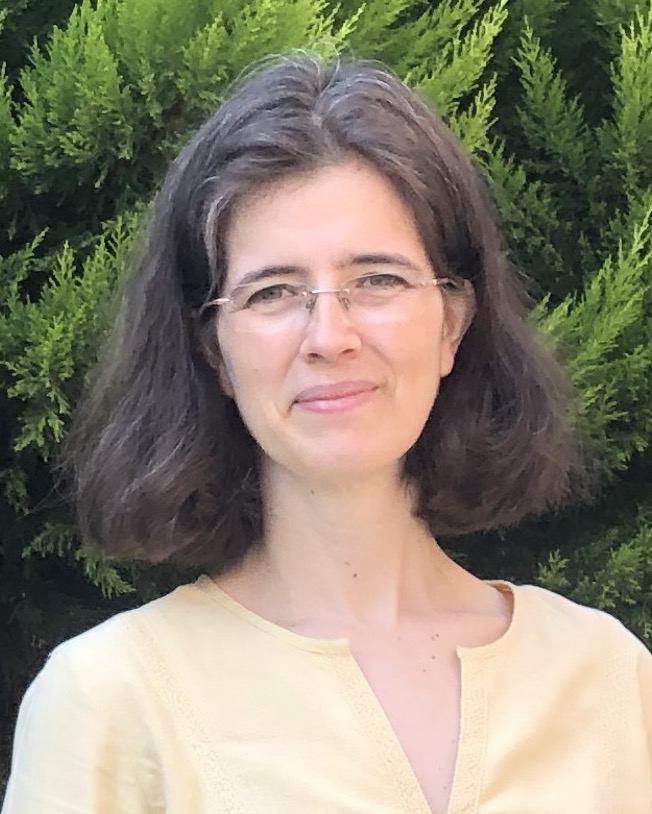
- +351 213 652 600
- +351 213 632 105
- Enviar Mail
- Download CV
- Orcid
- NOVA Research
Sofia Seabra
Grupo GHTM: TB, HIV and opportunistic diseases and pathogens, THOP PhD members
Sofia G. Seabra completed a PhD in Biology (Evolutionary Biology) by the Faculdade de Ciências Universidade de Lisboa, in 2007. She was a postdoctoral researcher from 2007 to 2020 at FCUL. Since 2020 she has an institutional CEEC contract as Assistant Researcher on Bioinformatics and Biostatistics at the International Public Health and Biostatistics Teaching and Research Unit of Instituto de Higiene e Medicina Tropical, Universidade Nova de Lisboa.
She is Principal Investigator in the internally GHTM funded project ‘WasteWaterVir – Integrating metavirome analysis of wastewaters into tools for surveillance of infectious diseases’, and is a team member in two other ongoing projects. She participated in 8 other scientific projects, including 1 as Principal Investigator, 1 as Co-Principal Investigator, and 3 as responsible for project tasks. She supervised several post-graduate students and participated in evaluation committees in PhD and Master theses. She teaches Biostatistics in the IHMT Doctoral Programs ‘Biomedical Sciences’ and ‘International Health’ and Molecular Epidemiology in the NOVA Masters ‘Computational Biology and Bioinformatics’.
My research on genomics and bioinformatics at IHMT-NOVA integrates the field of public health, with ongoing studies on worldwide Zika virus genomic variation and metavirome analysis of wastewaters. In the Zika virus study we characterized the genome-wide diversity and phylodynamics of ZIKV, to identify genomic footprints of differentiation patterns and to propose a dynamic classification system that reflects its divergence levels. In the metavirome study we will apply and develop tools for metavirome analysis of wastewaters, using the sequencing and bioinformatic infrastructures of GHTM, to analyse the viromes of influents of urban wastewater treatment plants to contribute to the surveillance of emerging diseases.
- Seabra SG, Libin, P. J. K., Theys, K., Zhukova, A., Potter, B. I., Nebenzahl-Guimaraes, H., … Abecasis, A. B. (2022). Genome-Wide Diversity of Zika Virus: Exploring Spatio-Temporal Dynamics to Guide a New Nomenclature Proposal. Virus Evolution, 8, 1–15. https://doi.org/10.1093/ve/veac029
- Seabra SG, Rodrigues ASB, Silva SE, Neto AC, Pina-Martins F, Marabuto E, … Octávio S. 2021. Population structure, adaptation and divergence of the meadow spittlebug, Philaenus spumarius (Hemiptera, Aphrophoridae), revealed by genomic and morphological data. PeerJ, 9, e11425.
- Seabra SG, Silva SE, Nunes VL, Sousa VC, Martins J, Marabuto E, Rodrigues ASB, Pina-Martins F, Laurentino TG, Rebelo MT, Figueiredo E, Paulo OS. Genomic signatures of introgression between commercial and native bumblebees, Bombus terrestris, in western Iberian Peninsula – implications for conservation and trade regulation. Evolutionary Applications, 12: 679–691. https://doi.org/10.1111/eva.12732.
- Seabra SG, Fragata I, Antunes MA, Faria GS, Santos MA, Sousa VC, Simões P & Matos M. 2018. Different genomic changes underlie adaptive evolution in populations of contrasting history. Molecular Biology and Evolution 35: 549–563.
- Seabra SG, Brás PG, Martins J, Martins R, Wyatt N, Shirazi J, Rebelo MT, Franco JC, Mateus C, Figueiredo E, Paulo OS. 2015. Phylogeographical patterns in Coenosia attenuata (Diptera: Muscidae), a widespread predator of insect species associated with greenhouse crops. Biological Journal of the Linnean Society, 14, 308–326.